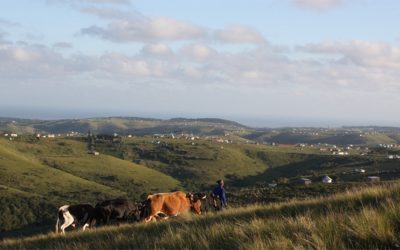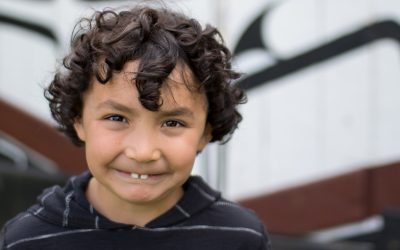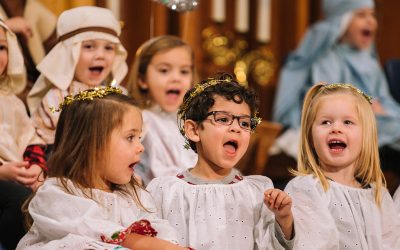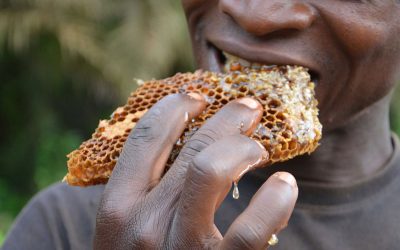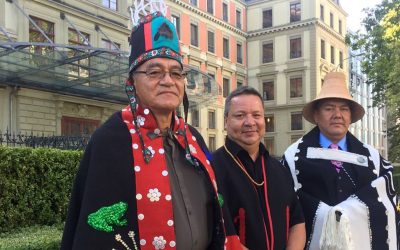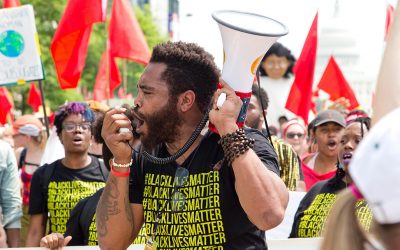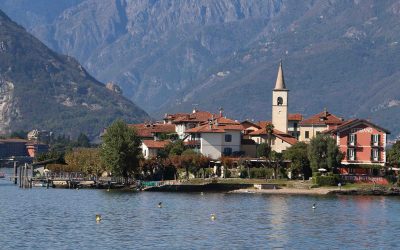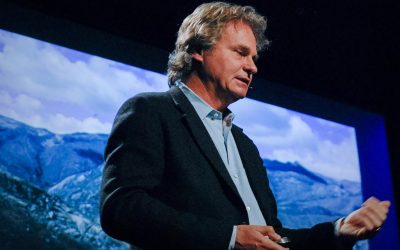ISSUE 2: WORLDVIEWS
“A worldview is a view of the world, used for living in the world. A worldview is a mental model of reality—a comprehensive framework of ideas and attitudes about the world, ourselves, and life, a system of beliefs, a system of personally customized theories about the world and how it works—with answers for a wide range of questions…”
This quote, pulled from a reference in Michelle Vander Wal’s How Stories form our View of the World, helps us understand a concept that in turn helps us understand our reality: a mental tool, a framework, a system…
We stumbled across this image on archaeologist Rhory Gillies’ Instagram feed and were instantly intrigued: by the mixed media, by the unique format and by the expressions of pure joy on the children’s faces. We needed to know more—about the piece and the artist. Read more…
STORIES IN THIS ISSUE
The Power of Poetry in South African Culture
What does poetry do? The question is simple but contentious. Some claim that poetry, that art in general, doesn’t do anything, that it doesn’t need to…
Indigenous Education through Homeschooling
I had always planned to homeschool my eight-year-old son. Yet, when kindergarten rolled around, he decided he wanted to go to the local public school, where most of his friends were.
Empathy & Solidarity: Correspondence with a Bahraini Soul Sister
I first meet Bahiyah in Prague, where I’m living for a few months during my undergraduate degree. She presides over a group of men and handful of women talking in accented English.
How Stories form our View of the World
The importance of a story to a child cannot be overstated. More important, even, is the child’s own story. Children love to hear the story of their birth or adoption.
Liberian Beekeeping: Myth versus Science
We arrived in Liberia in 2007 to help rebuild schools after a 14-year civil war decimated the county. We didn’t realize at that time that our main focus would become training adults in beekeeping.
Chief Na’Moks Reports to the United Nations
John Ridsdale, Witsuwit’en Hereditary Chief Na’Moks, never had a strong desire to leave Canada. But in 2016, he got his passport and travelled to New York City.
The Cultural Influences of Political Engagement
In Canada, like in all democracies, the health of our political system is dependent on how engaged citizens are in politics. Yet our participation rates over the last 20 years have been…
7 Cultural Tourism Destinations to Visit this Year
In this world of rapidly increasing globalization, it can feel like no place has been left culturally untouched by tourism. But those places remain.
Wade Davis Challenges your Worldview
When it comes to worldviews, there is perhaps no better perspective than that of Wade Davis, a pioneer in the world of anthropology, not to mention an ethnobotanist
WORLDVIEWS: What’s your Story?
Our worldview is a way to bring order to how we interpret and process the world around us. It is also our story.
Story is a theme throughout this issue: Without a fair retelling of our history, how can we hold a stable worldview? How can we understand the world and our place in it if it has never been fully, honestly, explained to us?
In his interview with Culturally Modified editor Amanda Follett Hosgood, Witsuwit’en Hereditary Chief Na’Moks says, “History must be told properly.” He adds: “They’re heartbreaking stories. But this is true history. These stories aren’t made up.”
Vander Wal’s piece discusses story in the context of the narrative we’re taught in schools. That narrative is often lacking, telling us the history of colonialism and Canada’s past through rose-coloured glasses, leading not only to an incomplete worldview, but to a national identity crisis. While Vander Wal argues for decolonizing the classroom, Carla Lewis’s inspiring piece talks about circumventing it altogether, pulling her son out of kindergarten in favour of teaching Indigenous values and traditions at home.
While worldviews flourish through education, they are first established in the home, as noted by Erica McCollum through her research on culture and political participation. McCollum identifies social contexts as the most common influence promoting political engagement, adding, “these contexts could be created in school or social networks, they most often started in the home.”
Perhaps not surprisingly, our quest for diverse worldviews took us far beyond the home, inevitably travelling overseas: to South Africa, where Emily McGiffin studied poetry and storytelling in rural villages; to Prague and, ultimately, Bahrain through Bahiyah, an Arab woman whose correspondence connects contributor Melissa Sawatsky with the Middle East over time and distances.
It took us to Liberia, where beekeepers are learning the science of their craft to create lucrative businesses, and it took us to the United Nations in New York and Geneva through the words of Chief Na’Moks, who spoke on a world platform about Canada and its human rights record.
Travel is a key element in gaining a greater perspective on worldviews, particularly our own. By experiencing more of the world, we better understand the great diversity of experiences and cultures that exist, each of them—as Wade Davis so eloquently points out in his TED talk—with their own merits and beauty. He notes, “These myriad voices of humanity are not failed attempts at being you, failed attempts at being modern; they are unique facets of the human imagination. They’re unique answers to a fundamental question, what does it meant to be human and alive?”
The fundamental question: The one that leads to so many deeper questions. The one we seek to answer through our worldview.
But we need not travel far to experience worldviews different from our own. Our neighbour may be an immigrant whose perspective was established amidst conflict and turmoil; or they may be Indigenous with a connection to the land that runs deeper than many familial bonds. Within our own families, in fact, we can experience dramatically different worldviews.
So, what’s your story? What are the fundamental questions you seek to answer? And, in your journey, have you begun to notice, begun to accept, the varied worldviews of others? The world in which we live is a kaleidoscope of worldviews. Understanding the core differences between them is imperative for respectful relationships between people, societies and nations.
